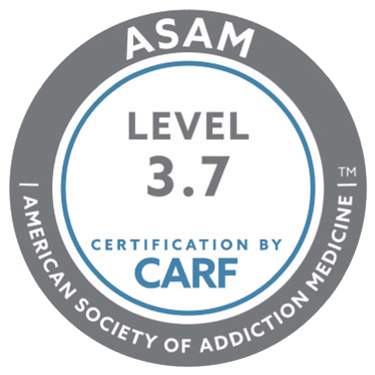Believe it or not, many people who have struggled with addiction relapse during sobriety because they have difficulty finding purpose after substance abuse treatment. A sense of purpose helps motivate a former addict and build their self-worth. If they don’t have this solid foundation under their feet, especially if they have been diagnosed with anxiety, depression or another mental health disorder, they’re more likely to fall back on old bad habits that give them a high to help them through their low periods. This is especially true for those with co-occurring disorders, who may need specialized treatment to address both their substance use disorder and mental health concerns.
Whether you or a loved one needs to rebuild relationships, a career, self-confidence or even a sense of “self” after treatment for one or more addictions, it’s important to have professional help and guidance post-addiction treatment. This support can help with self-discovery and personal growth, providing coping strategies and other tools that increase the chance of long-term recovery and sobriety. Don’t neglect self-care during this process; it’s crucial for maintaining your well-being.
Addiction recovery is more than overcoming harmful substance use. It’s about creating a fulfilling, meaningful life that gives you something other than cravings and negativity to think about every day. Read on to learn more…
Why Is Purpose Vital After Addiction?
After many people who have struggled with substance abuse take the first extremely difficult steps on their journey to recovery by going through detox, withdrawal and rehabilitation, they have a false sense that their journey has an endpoint (i.e., they feel like “mission accomplished!”). They incorrectly believe that their walk on this path will be primarily positive and fulfilling from that point forward.
This time is actually the most dangerous for a former addict, especially if they lack a sense of direction in their life or they’re struggling anew to acquire or hold down a job, make up past wrongs to their family, friends, coworkers and others, or merely trying to get through hour to hour when they’re alone and have nothing in their lives to fill the void once occupied by the chasing, consumption and aftermath of their addiction.
Having purpose reduces the risk of a relapse by improving mental health and filling that void. Chasing after life’s purpose can be a source of great motivation. Once you have an objective, it can then motivate you to set goals and go even further. Purpose can help you live a more fulfilling life and is one of the best and most natural stabilizing influences during recovery and long-term sobriety.

Strategies for Finding Purpose After Addiction:
Yet, many former addicts became addicted to one or more substances and actions, such as alcohol, nicotine, prescription or street drugs, gambling, shopping and many vices, because they lacked purpose in life and the tools needed to find it. For many, they treated abuse, anxiety, boredom, stress and other moments that seemed the opposite of having a purpose with substances, actions and bad habits.
So, how does a recovering addict find purpose? First, you need to figure out who you are without your addiction. What do you value? Second, you need to figure out who you want to be within your community and personal, academic and work relationships. Third, you have to think about how to apply this knowledge to your life. What steps can you take?
Consider the following recommendations:
Reconnect with Passions and Interests
Think about your unique skills and any healthy, positive hobbies and pastimes (i.e., activities that brought you joy) that you put aside because of your addiction. Any type of creative outlet or event that you used to enjoy and that didn’t drive you toward cravings and bad habits can replace the time previously wasted on substance abuse. These outlets can also help you build new, more positive, uplifting and supportive social networks.
Build Healthy Relationships
Reach out to loved ones who offer only love and positive reinforcement. They’re the people who remember you before addiction took over your life. By strengthening connections with healthy, supportive family members, friends and peers, you can rediscover your best self, learn from their points of view about your worst self, and realign your goals.
Explore New Opportunities
The world is filled with fun and fascinating things to do. No one should ever suffer from boredom during a technological age when you can access free education, art, museums, books, entertainment, new social groups, and so much more at your fingertips within seconds. For example, you might pursue a degree and use remote learning to stay away from campus life and any peer pressure to return to bad habits. You might start a new career in a different field. Have you thought about helping others either in your situation or in an entirely different charitable area? If so, then you might consider becoming a volunteer.
Set and Achieve Goals
Of course, once you’ve discovered potential sources of purpose, you need to make and stick to a plan of action. Many former addicts have attention deficit or focusing problems that make it harder for them to keep plans and schedules. Create a list of short- and long-term goals that you and members of your social support network believe will help you build self-esteem, confidence and a new life.
Embrace Awareness and Spirituality
During this time, a recovering addict often feels overwhelmed by a life without addiction. They have even greater difficulty dealing with their emotions. Even positive emotions can make them feel fearful about when the next shoe will drop or when they might make a mistake that causes them to spiral. The negative self-talk tells them that they’re going to fail no matter what they do and no matter how hard they try to move forward. When you’re more aware of these emotions and thoughts and have tools to fall back on, such as deep breathing exercises, exploration of spiritual beliefs, and meditation, you’re more capable of emerging from low moments without relapsing or giving up.

How Recreate Behavioral Health Network Supports Purpose-Focused Recovery
Recreate Behavioral Health, an established addiction recovery and mental services provider in Boca Raton, does more than help patients through detox, withdrawal and initial medically supported rehabilitation. The professional staff at the center use every tool in their toolbox to help patients rediscover purpose and bring meaning back into their lives.
Why are they trusted by not only residents but also out-of-state visitors?
- Personalized Therapy: They perform a thorough assessment and then craft one or more therapy programs tailor-made to your personal recovery goals.
- Caring Support: They know that many patients lack the education and tools necessary to successfully pursue purpose and find meaning. They provide the care and support you need to focus and then offer assistance with achieving career goals, creating healthy routines, developing life skills and rebuilding relationships.
- Holistic Approaches: They encourage better and greater self-awareness and help you become more involved with both your local and sobriety communities, feel less alone, and learn to live with sobriety. One way they help is through their Alumni Program that connects you with others walking the same part of the path on this journey.
Purpose Is a Key Part of Recovery
To rebuild a meaningful life after overcoming addiction, you need to take proactive steps toward finding purpose. Purpose gives you the confidence, courage, strength and many other positive elements needed to achieve a sustainable, lasting recovery.
Many people can’t take this step without professional support. No matter where you live in the United States, you or a loved one can find advice and help to pursue purpose and other critical recovery steps through Recreate Behavioral Health. Our treatment programs can help you address drug addiction and alcohol addiction (also known as alcohol abuse) through evidence-based methods, including the 12-step program. Our caring, supportive staff members at our treatment center are committed to helping people rediscover purpose and achieve lasting recovery, supporting them on their journey of recovery and into life after addiction. To learn more for yourself or someone you care about, call Recreate Behavioral Health today.










